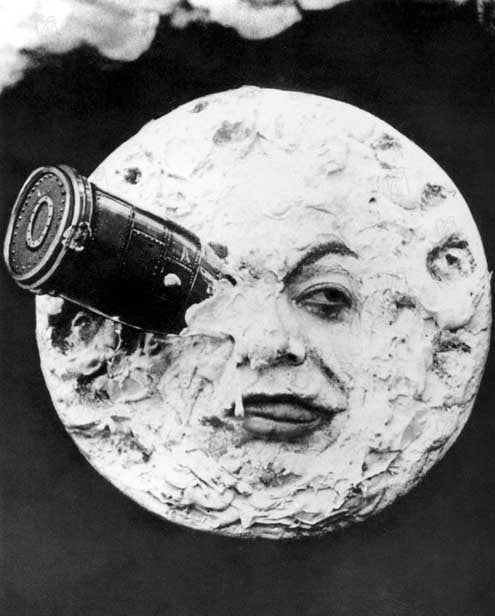Like “LAST CHANCE TO SEE THIS ASTRONOMICAL ALIGNMENT FOR ANOTHER XXX YEARS!” (granted something almost exactly like it will happen next month)
Eh, Kepler’s laws are legitimate science. And if I say that in 2025 the ascending node of the lunar orbit coincides with the vernal equinox and therefore there will be a super Harvest Moon (the one in 2024 in that case), that forces me to explain what the hell I am talking about, which forces some actual astronomy into the picture as well.
If you want to follow an upstart, go right ahead. Us traditional folks will stick with the OLD Farmer’s Almanac, first published in 1792.
But they haven’t been new science for about 400 years. Next there’ll be articles about how the sun is going to rise in the east.
[pedant mode] The sun doesn’t rise. The earth rotates so that the apparent horizon becomes lower. [/pm]
And much better than astrology!
Don’t give them ideas. Next it’ll be the Pisces Moon, the Cancer Moon, etc. Spare me.
That’s already a thing. ‘Traditional’ astrology is based on when the sun is in each zodiacal constellation (except Ophiuchus for you astronomical pedants), but there is a whole bunch of astrological knowledge wisdom intelligence bullshit based on when the moon is in a particular constellation.
Oh yeah. I know that much about astrology.
I’m just suggesting that in the unending pursuit of the destruction of the last vestiges of scientific thinking in the USA, soon the breathless TwitFace posts about Super Moons and Wolf Moons and Ultra Bloody Stupid Moons will be supplanted by breathless TwitFace posts about the Virgo Moon, the Taurus Moon, etc.
But not, I predict, by the Ophiuchus Moon. ![]()
For example:
Yeah, yeah. It’s a full moon. That’s about it. But as @LSLGuy says, “clicks”. That’s all it is.
I have never once seen the eastern horizon appear to drop lower. I would be interested in your observations.
They all have names, twelve of them, and for about every 18 months when there are two full moons in the same month, Blue Moon, the origin for that being unclear.
I remember some years ago when the Mars opposition was closer than usual, something that happens every 17 years, all of the breathless stories led to people going outside for a look, expecting the red planet to have a visible disk only somewhat smaller that the moon.
I don’t care what you call the Moon (H̵̨̢͇̮̟̝͉̻͔̤̠̣͖̮͈̀̒̋̒̀͒̽̐͆̋̎͒͆͘͝i̴̹͔̱̗͙̿̔̾́̈̂͆̈́͗͌̂̊͆̓͆ṡ̸̨̢̡̛̠̲̜͓̘̩͕̲̣̥͔͂̅͑̋ ̴̡̧̧̛̛͖̪̱͍͉͊̑͛̊̄̐̆̚͜͝T̶͓̳̆̈̈́̊̄̿̈́̽̅͑̄̈̕͘͝h̶̛̖̦̪̊̏̾̿͛̒̓̒͛̕̕͠r̵͇̦͇̬̻͓͍̰͋̋̂̂̈́́̽͊̏̚͘͘ͅỡ̶̢͉̝̘̥̤͔̭̬́̎̀́͑̔̓̀͝͝n̶̨̺̼̼͕͇̲̜̍͝e̶̢̛͙͔̫͜ͅ), all I know is that you absolutely shouldn’t look at it.
Another strong vote against using “Native American” names for moons. That’s right, all Native Amercians across the whole land used exactly the same names for the moons. Even the ones who didn’t live where it snowed, or had pollen seasons, etc. Sure.
Plus magic happens in years with 13 moons. (7 years out of 19.) And of course the Native Americans kept the same concept of “year” as we do. Including the same start date of the New Year. Sure*2.
Well, I don’t call it that.
Arguably the naming of months was the same as the naming of moons, although we seem to have become decoupled from that with the “wolf moon” , “strawberry moon”, etc. For the record, I think it was the almanacs that gave us these cutesy names for moons (and not necessarily the “Old Farmer’s Almanac”, which was by no means the earliest 9it only dates back to 1792). I also don’t think we got names like “wolf moon” from Indian traditions.
“Blue moon”, by the way, started out as the name for a 28 day period, much like “wolf moon”. It’s the name that you gave the “extra” month that had to be intercalated to prevent the lunar calendar from slipping out of sync with the solar calendar. It’s the name of a fourth full moon i a season, so that it has a name. It’s not “a” blue moon – that month is “blue moon”. The Hebrew calendar does the same thing, but they simply repeat month names, not giving a special name to the extra month. The Muslim calendar doesn’t have this problem – they don’t intercalate a month, letting the lunar and solar calendars diverge.
The names were translated by colonial New Englanders from the original Algonquin.
Cite?
What the heck is this?

